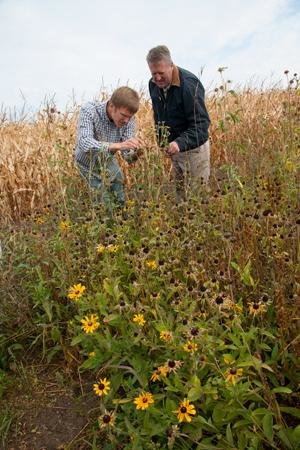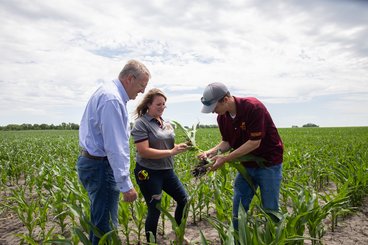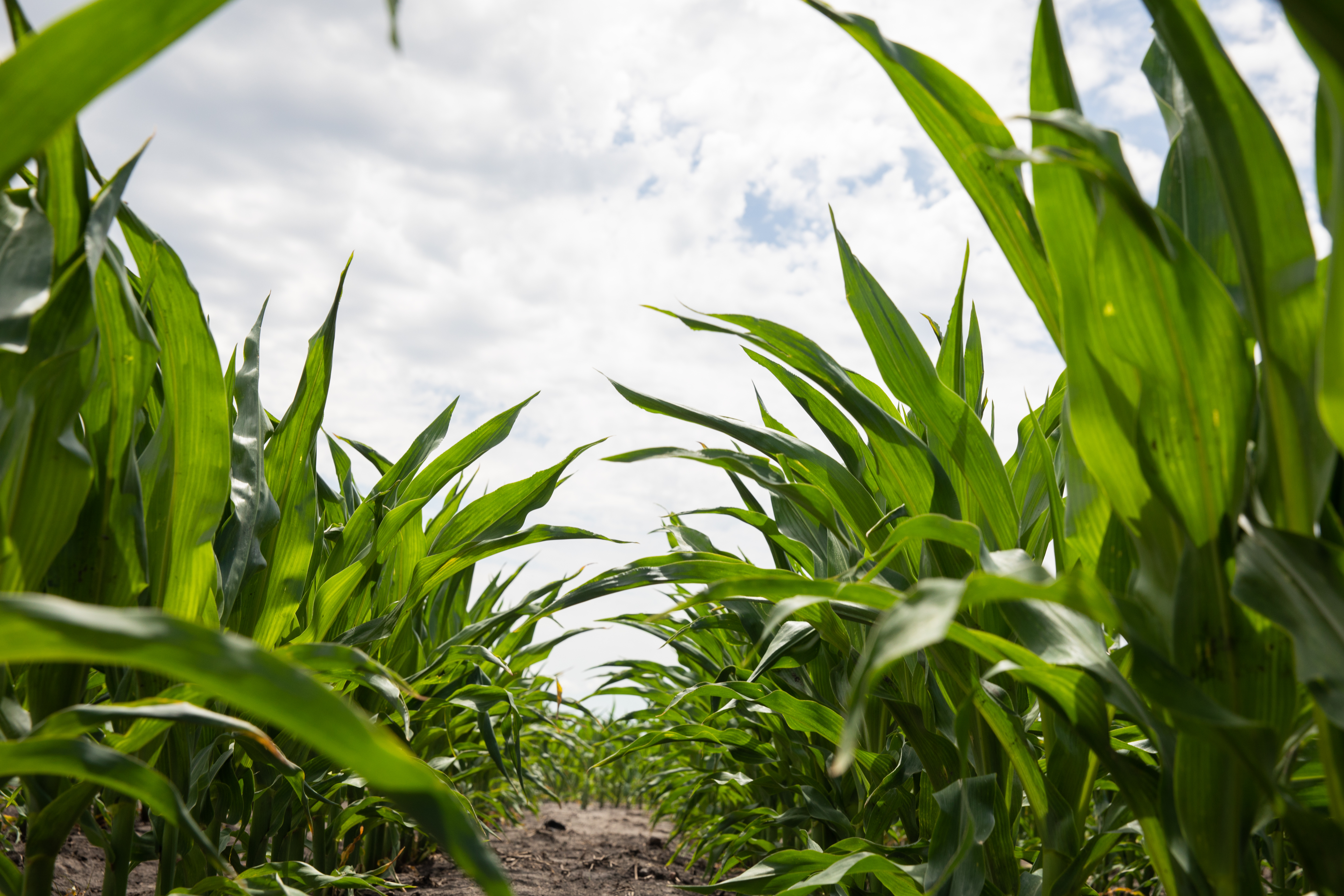A primary goal of the SROC agronomy research and outreach program is to improve the efficiency, profitability, and resiliency of annual and perennial cropping systems. Our program explores applied production strategies that provide multi-value outcomes to improve the economic and environmental value of agriculture.
Our research focuses on diversified annual and perennial cropping systems that can supply multiple values including food, fiber, health, bioindustrial feedstock, and critical ecosystem services.
At the University of Minnesota, agronomy is based in the Department of Agronomy and Plant Genetics. Our staff collaborates statewide with colleagues throughout the University of Minnesota system as well as with other institutions and organizations. Our research is also part of the Forever Green Initiative, an innovative research program developing new crops and high-efficiency cropping systems.
Oilseed and Perennial Biomass Cropping Systems
Our research focuses on designing biomass cropping systems that provide a reliable and consistent source of feedstock for the emerging bioeconomy. We investigate integrating biomass crops, like willow, poplar, pennycress, camelina, and switchgrass, into cropping systems to diversify the landscape and generate greater economic, environmental, and ecological value.
Our goal is to provide farmers with profitable and efficient crop diversification options. Those options include expanded crop rotations that include perennial biomass crops (spatial diversification) or integrating an oilseed cover crop into and existing annual cropping systems (temporal diversification). Ultimately, incorporating perennial biomass crops into the farming enterprise will enhance profitability, protect and improve the landscape and its ecology, and make food supplies more sustainable and secure.
Minnesota Long-Term Agricultural Research Network (LTARN)
The SROC is also a site for the Minnesota Long-term Agricultural Research Network (LTARN). This research project has three total site locations in the state; here in Waseca, at the Southwest Research & Outreach Center (SWROC) in Lamberton, and at the North Central Research & Outreach Center in Grand Rapids.
Our LTARN cropping systems research investigates how crop diversity can be used to reduce risk across various landscapes and scales. Data collected is used to understand the source of variability in production output. We also utilize the data to establish guidelines for cropping system choices that improve production output and efficiency, while also addressing environmental and ecological considerations.
The LTARN is an outcome-based research, outreach, and education entity that provides for a coordinated approach to agricultural research that is geographically scalable, systems-oriented, multidisciplinary, and guided by a common vision.
Strategies for Managing Annual Crop Inputs
We conduct a variety of studies related to managing annual crop inputs. We focus on finding the best management strategies that improve the efficiency and profitability of producing crops like corn, soybean, spring wheat and oats. We share SROC research results with corn and soybean producers at our annual Agronomy Field Day in June and Winter Crops Days in January.
Minnesota Corn Performance Test
The Minnesota Corn Performance Test is headed out of the SROC. This program provides an avenue for seed companies to enter hybrids into a testing program across Minnesota. Results are shared with farmers to help them choose the hybrids best suited for their growing conditions.
Weed Management
A variety of weed management studies are also conducted at the SROC as part of the statewide weed management trials. Research includes testing of management approaches to control giant ragweed, tall waterhemp, common lambsquarter, giant foxtail, common ragweed, velvetleaf, common cocklebur, and redroot pigweed in corn and soybean.



